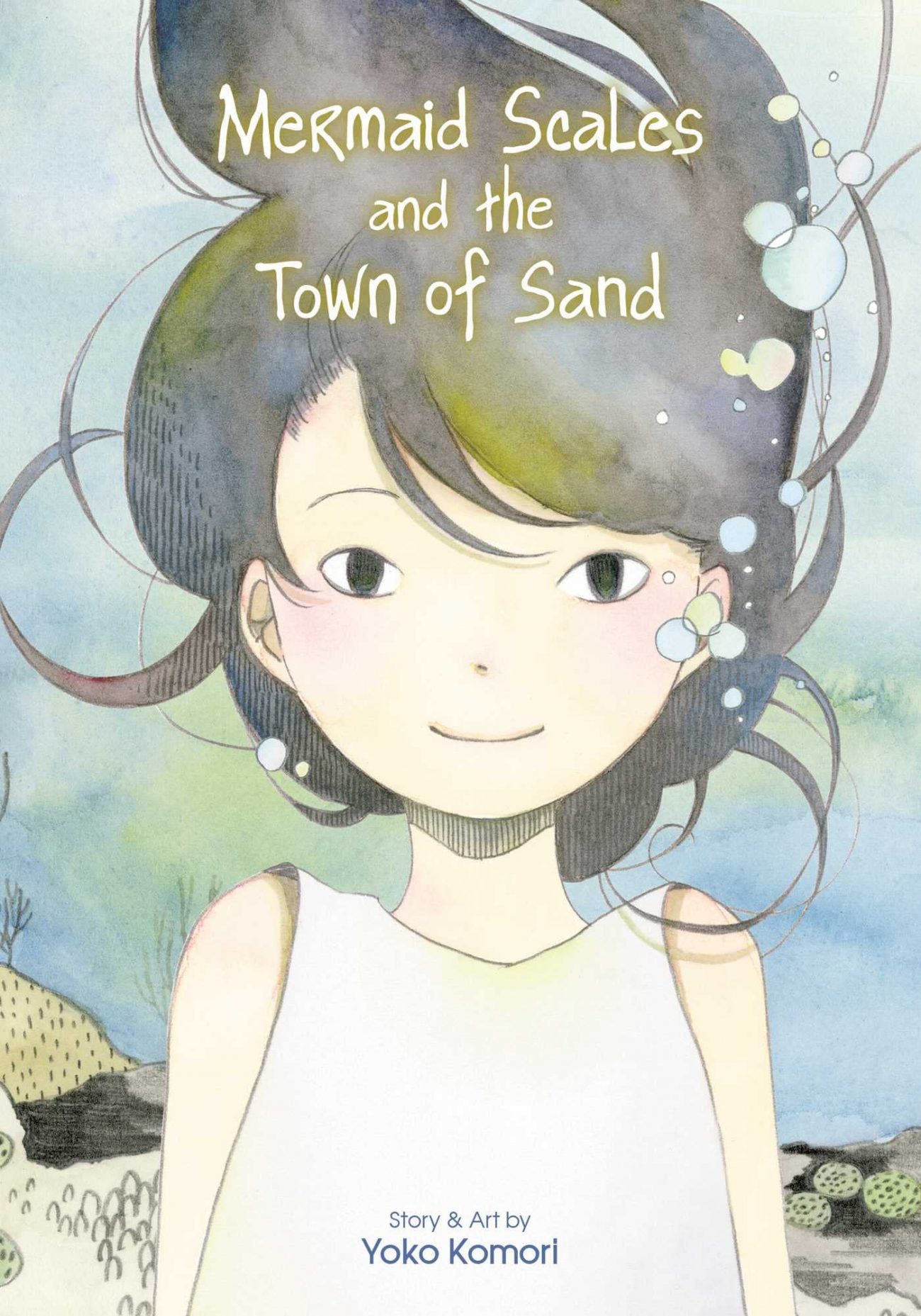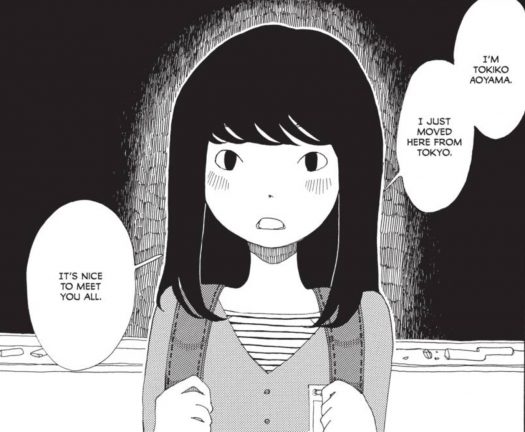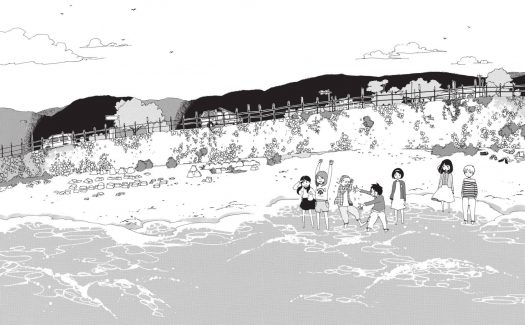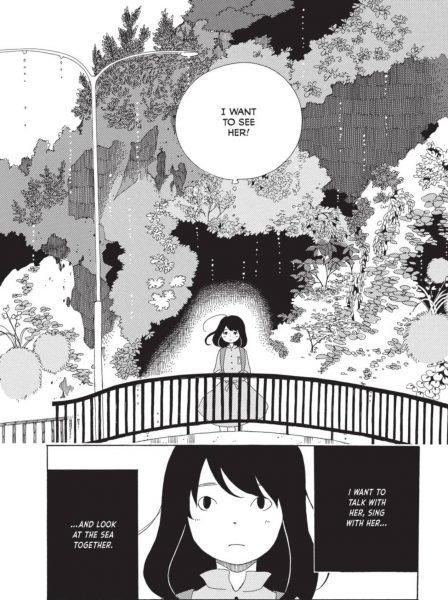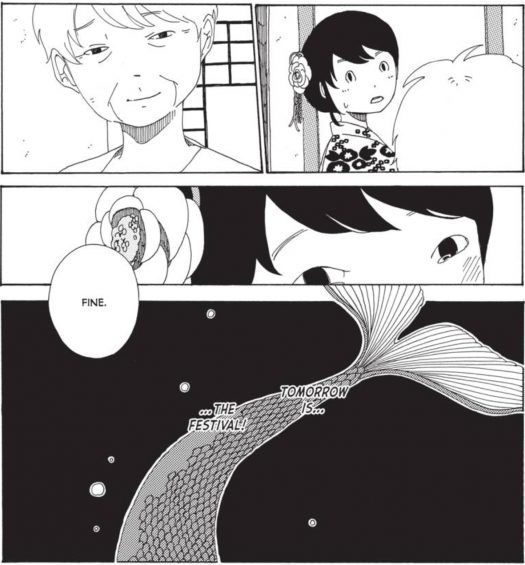MANGA REVIEW | Coping & Accepting Tough Changes in a "Town of Sand"
When we’re young, dealing with new circumstances and surroundings can be a challenge. Sometimes it leads us to become accustomed to these new things; other times, it can make us question the whys and hows of this world of ours. For Tokiko, the main focus of Yoko Komori’s 2013 graphic novel Mermaid Scales and the Town of Sand, it’s a little bit of both. And from this new experience of hers comes both sad realization and happy opportunities.
The story begins with Tokiko and her father moving to a coastal town. Her mother is absent, an odd thing considering the two have moved to her birthplace. While taking a look around, Tokiko finds herself by the seashore, as she reflects on an incident from when she was four. Back then, she almost drowned, but — according to her — a merman saved her. Coming back into the presence, she meets Yosuke, whose looks awaken a feeling of sadness in her heart.
With her mom missing-in-action, Tokiko seeks to find something to fill the hole in her heart that was made by that absence. While dealing with that, she also does her best to get along with her new classmates, as they attend school, buy candy, and play at the beach. But there’s something about Yosuke that drives Tokiko closer to him, and it has plenty to do with the merman that rescued her. On top of that, it appears that there’s a great secret being kept from the kids about the town itself, one involving a deity.
A lot of Mermaid Scales and the Town of Sand focuses on Tokiko going back-and-forth between the past and present. She thinks of her mom and her delicious breakfasts, but also knows that things weren’t too happy between her parents. While she misses her dearly, it quickly becomes apparent that the mom didn’t play as strong a part in her life as she thought. It’s why she finds it easy to move to a new place with her dad, without leaving any hint to the mom as to where they went.
Meanwhile, Tokiko becomes accustomed to her new classmates, and often finds herself playing with them, attending festivals, and even bonding over the little things in life. But when a group of them go to check out a mysterious tunnel, a murmur goes through the town. Is it a hundred-eyed monster looking to eat kids, or is the murmur the adults who are trying to shield a secret from the youth? As the story goes on, much of the truth comes to light, in ways that both sadden and satisfy Tokiko and Yosuke.
There’s a deep innocence surrounding Mermaid Scales and the Town of Sand, even with the hints of danger and secrets roaming throughout the town. Although being eleven is a far-cry different from being four, Tokiko still has some beliefs that have stood by her since being a toddler. And it’s understandable, seeing as she almost drowned and swears something or someone saved her. It’s a situation that causes a brief fight between Tokiko and Yosuke, the latter of whom doesn’t quite believe in the myths that spread throughout his homeland.
That’s not to say that Komori’s trying to make her readers think that the world lies to everyone. In fact, the author goes to great pains to showcase that what we see — fantastical or not — has plenty of truth to them. There’s just some other part to it that you might not know about. When one discovers that last fragment of truth, it not only brings truth to a situation, but also helps that person grow up just a little bit more. Both Tokiko and Yosuke experience this in this story, in a way that gives them a sad-yet-comfortable bout of closure.
Komori’s art style also helps to soften the harsh truths that are discovered. It has a storybook feel to the characters, with their surroundings being also somewhat simplistic. In a way, the visuals are akin to child-like sketches, the kind one doodles in a notebook when they’re bored or spacing out during class. While not exactly high quality, the style can be very beautiful in places, especially when focused on the sea and the dark tunnel.
There’s a lot to unpack when reading Mermaid Scales and the Town of Sand. The narrative isn’t at all complex, and it deals with feelings that many a child have felt during their lifetime. Thankfully, Komori tells it in a way that let’s readers young and old know that they aren’t alone when facing new beginnings and tough situations. Mermaid Scales and the Town of Sand isn’t a coming-of-age story; it’s a coming-to-terms one, and a beautiful one at that.
FINAL GRADE:
Promotional consideration provided by Chantelle Sturt and Mandy Earles of VIZ Media.


